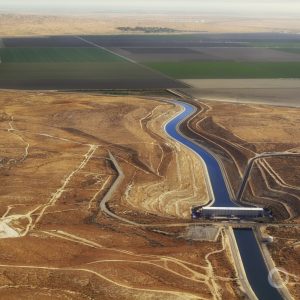The Stream, November 23: PFAS Found in Drinking Water of Australian Indigenous Communities
The Global Rundown
Indigenous communities across Australia struggle with arsenic, PFAS, and other contaminants in their drinking water. The Irish Environmental Protection Agency warns that up to a million people may be at risk of E. coli contamination in their private wells. Low river levels in Germany continue to slow fuel transportation, forcing the government to consider a relaxation of road transportation laws. Drought and wind drive a large dust storm in New South Wales, Australia. Locals say that poor fish harvests in remote northern Canada could be due to dirty water.
“It’s very strange…We have a char monitor out at Shingle Point and that number there too was pretty low, really low, like we don’t know what happened.” –Michelle Gruben, a member of the Aklavik Hunters and Trappers Committee, in reference to fishing shortages in traditional fishing hotspots in the Northwestern Territories and Yukon, Canada. The reason for the poor harvests is unclear, but local communities say it may be due to unusually dirty water in the region. CBC
Latest WaterNews from Circle of Blue
EPA Watchdog Flags Unregulated Pollutants in Treated Sewage Sludge — Hundreds of identified pollutants lack a risk evaluation.
Counting Homes Cut Off From Water Is A Data Collection Nightmare — California utilities revolt against state attempt for more water shutoff information.
By The Numbers
51 Private wells in Ireland that tested positive for E. coli contamination in 2017. The private wells of an estimated one million Irish citizens remain untested, however, putting many homes and businesses at risk. Irish Times
20 percent Proportion of normal shipments that can currently be loaded onto barges in Germany’s Rhine River, which dropped to record-low levels following a dry summer. Freighters are struggling to keep up with rising fuel demands, forcing the German government to consider loosening regulations on the road transportation of fuel. Bloomberg
Science, Studies, And Reports
Many indigenous communities in Australia lack clean drinking water due to a variety of contaminants, data shows. In some places, water is dirtied by naturally-occurring elements, such as arsenic and uranium. Elsewhere, agricultural chemicals and PFAS contaminants have tainted supply. Experts say fixing the water issues will require individualized solutions, versus a “one size fits all” approach. Phys.org
On The Radar
A combination of drought and high winds caused a severe dust storm to sweep across eastern Australia on Thursday. The storm created a haze in the city of Sydney and severely limited visibility in some inland areas of New South Wales. Al Jazeera
Kayla Ritter is a recent graduate of Michigan State University, where she studied International Relations and Teaching English to Speakers of Other Languages. She is currently based in Manton, Michigan. Kayla enjoys running, writing, and traveling. Contact Kayla Ritter








Leave a Reply
Want to join the discussion?Feel free to contribute!